Didcot power station: Search resumes after demolition
- Published
The boiler house at the power station was brought down shortly after 06:00 BST
Search efforts for three men killed in the Didcot power station collapse have resumed after the remainder of the boiler house was demolished.
A remote demolition brought down the decommissioned site at about 06:00 BST in a unique operation using remote-controlled robots.
Ken Cresswell, 57, and John Shaw, 61, and Chris Huxtable, 34, were trapped under rubble on 23 February.
The body of Michael Collings, 53, of Teesside, was recovered.
The building - which was due for demolition when it partially collapsed - had been too unstable to be approached afterwards.
RWE Npower, which owns the site, said the demolition had "gone as planned" and all of the structure was brought down.
Dust cloud
A spokesman said: "Now the building has been brought down, an inspection has confirmed the area and debris pile are safe and our contractors have resumed the recovery operation.
"We will continue working seven days a week, 12 hours a day to help return these families' loved ones to them as soon as possible."
The firm added it understood the time it was taking to recover the bodies had been "deeply upsetting" for their families.
BBC News correspondent Amanda Dellor, who was at the scene, said the charges went off one minute after six and the building came down "very quickly", covering the entire site in a dust cloud.
Families of the missing men watched from within the boundary of the power station.
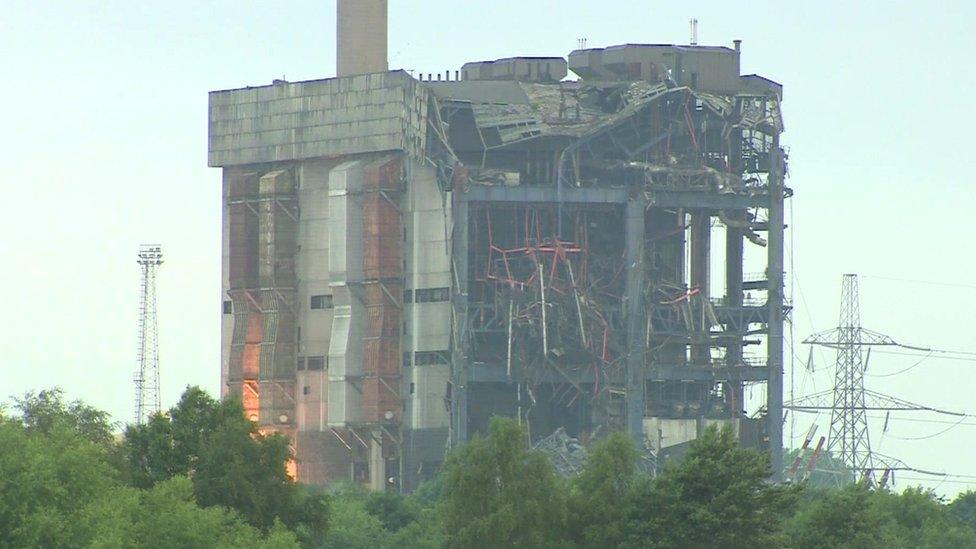
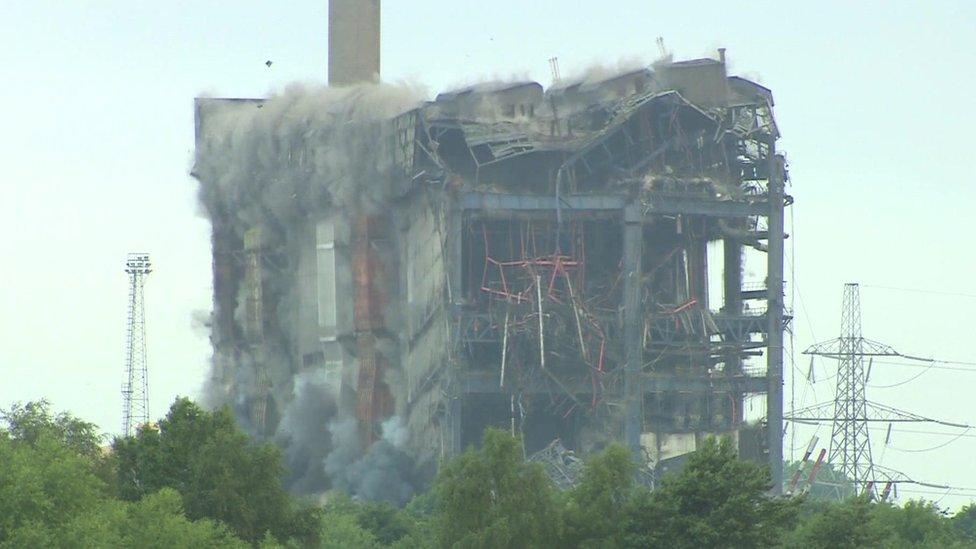
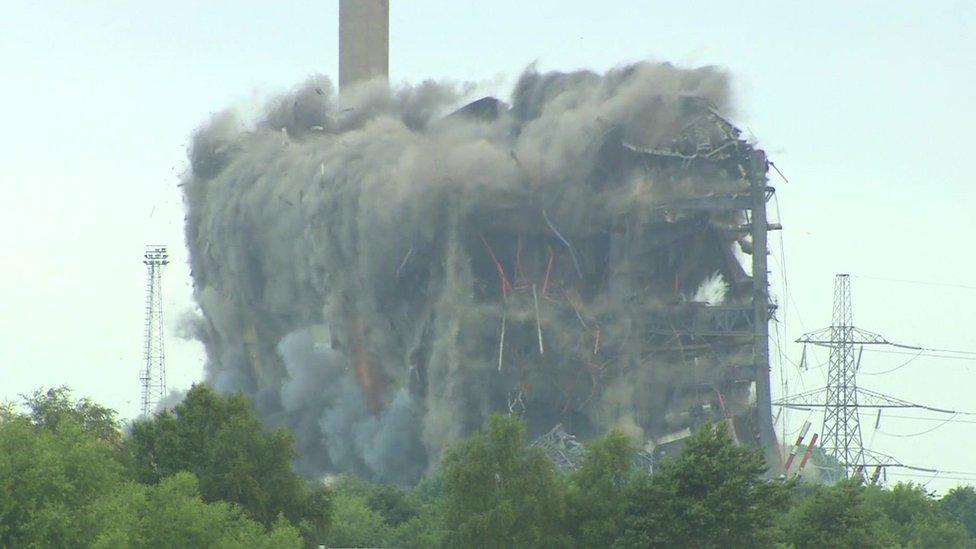
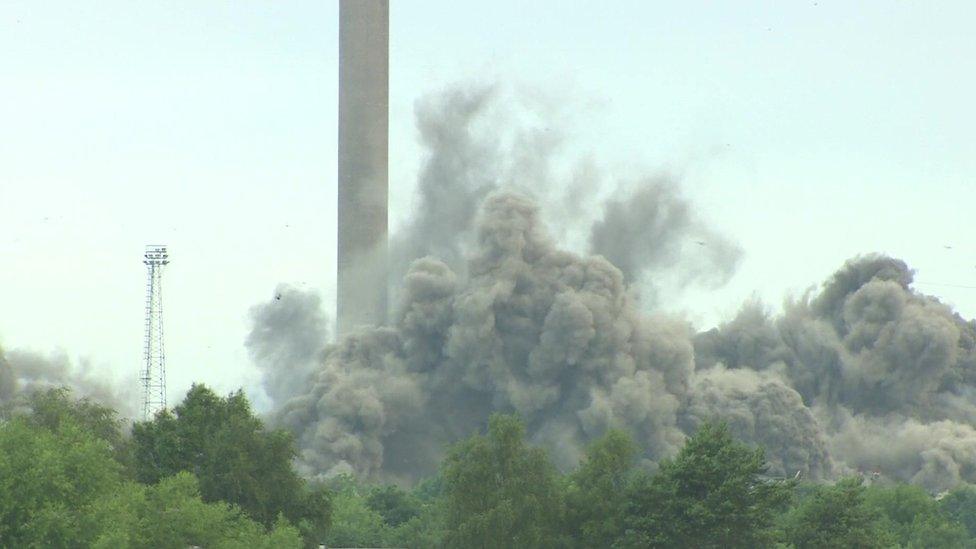
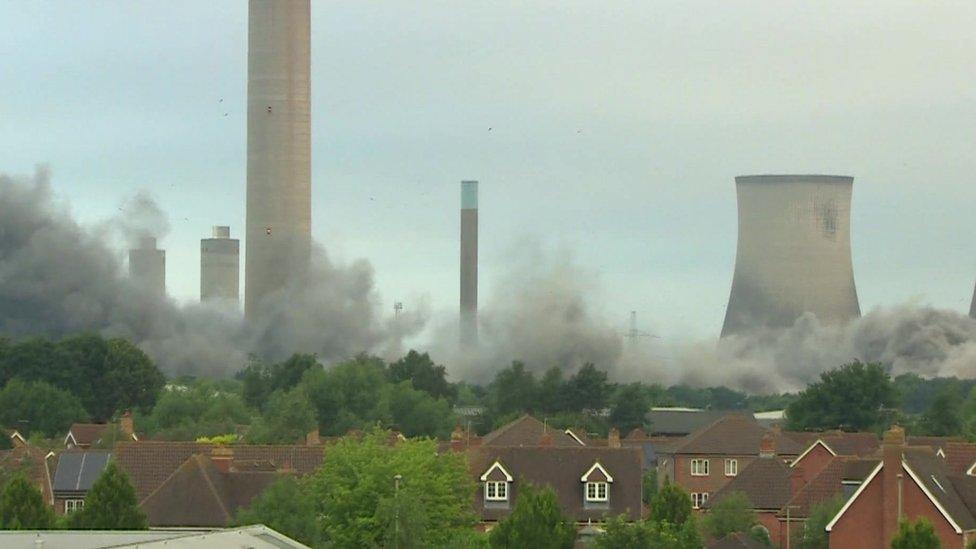
The search for Ken Cresswell and John Shaw, of Rotherham, and Chris Huxtable, of Swansea, has now resumed
The search was halted in May when contractors reached a 50m (164ft) exclusion zone, beyond which it was considered too dangerous to continue.
The families of the three men yet to be recovered had opposed plans to use explosives for the demolition.
Ken Cresswell and John Shaw were both from Rotherham, while Chris Huxtable was from Swansea.
Steve Hall, son-in-law of Mr Cresswell, previously said: "We want the men back in one piece, not many pieces."

At the scene, Amanda Dellor, BBC News
A small crowd gathered to watch the controlled demolition from Ladygrove Mound, around a mile from Didcot Power Station.
Just after 06:00 BST one large bang was heard, followed by several smaller ones, and the building came down in a matter of seconds. A blanket of dark grey dust covered the entire site and the famous cooling towers were hidden for several minutes.
Last night, I spoke to one family member who told me that they just wanted everything to go to plan today and they would quickly get to the men.
They just want the men returned back to their families and back home.

Roland Alford, the explosives contractor at the power station, said the four-month delay in completing the demolition was necessary on safety grounds.
He added: "It was almost unthinkable to send people to work underneath there and place charges, given the fact the building could come down at any moment - you legally can't justify that."
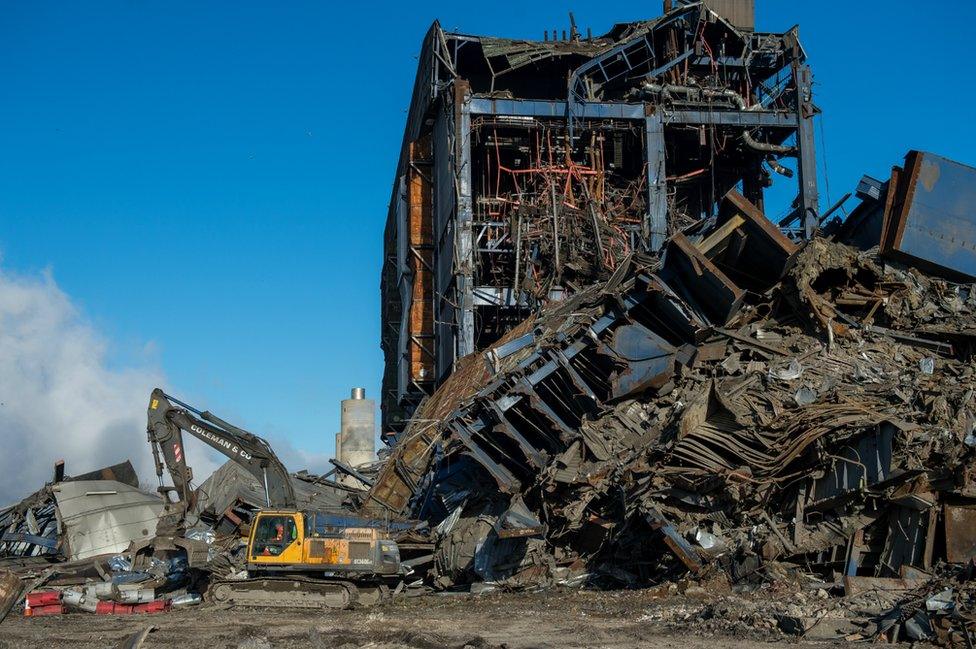
Families of the three men yet to be recovered opposed plans to use explosives
Residents took to social media to report the size of the explosion and to send their wishes to the men's families.
Victoria Martin tweeted:, external "Sobering hearing the rest of the boiler house at #Didcot come down this morning. Thoughts are with the families of the men still there.
Morts Lindholm said:, external "So, the boiler house at #didcot power plant was just demolished - what a bang! Now, let's recover the remains of the 3 missing bodies #rip."
Leanne Avis also tweeted, external: "Goodness me, what a bang! #Prayfor Christopher Huxtable, Ken Cresswell and John Shaw, find them and bring peace to their loved ones #Didcot."

Didcot power station

The Didcot Power Station site layout in 2014
Coal-fired Didcot A Power Station was turned off in 2013, after 43 years in service.
It included six cooling towers, measuring 375ft (114m) in height, of which three were demolished in the early hours of 27 July 2014.
A gas-burning power station - known as Didcot B - opened in 1997 on the site and continues to operate.
A major fire was declared at Didcot B in October 2014, with 20 fire crews sent to tackle the blaze at its peak. The cause was later confirmed as an electrical fault.
Further demolition work took place at Didcot A, until a major incident was declared on 23 February when part of a the boiler house collapsed, killing four demolition workers.

- Published17 July 2016
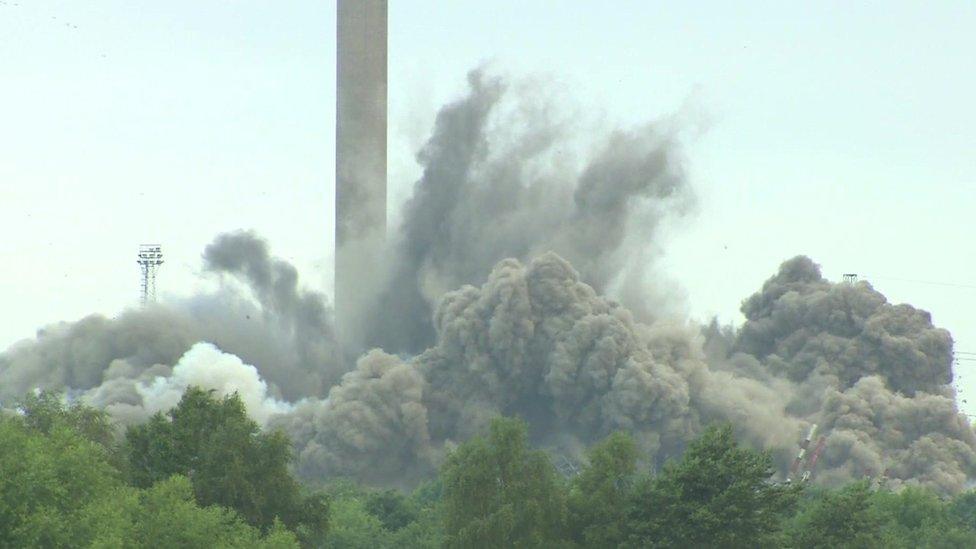
- Published11 July 2016
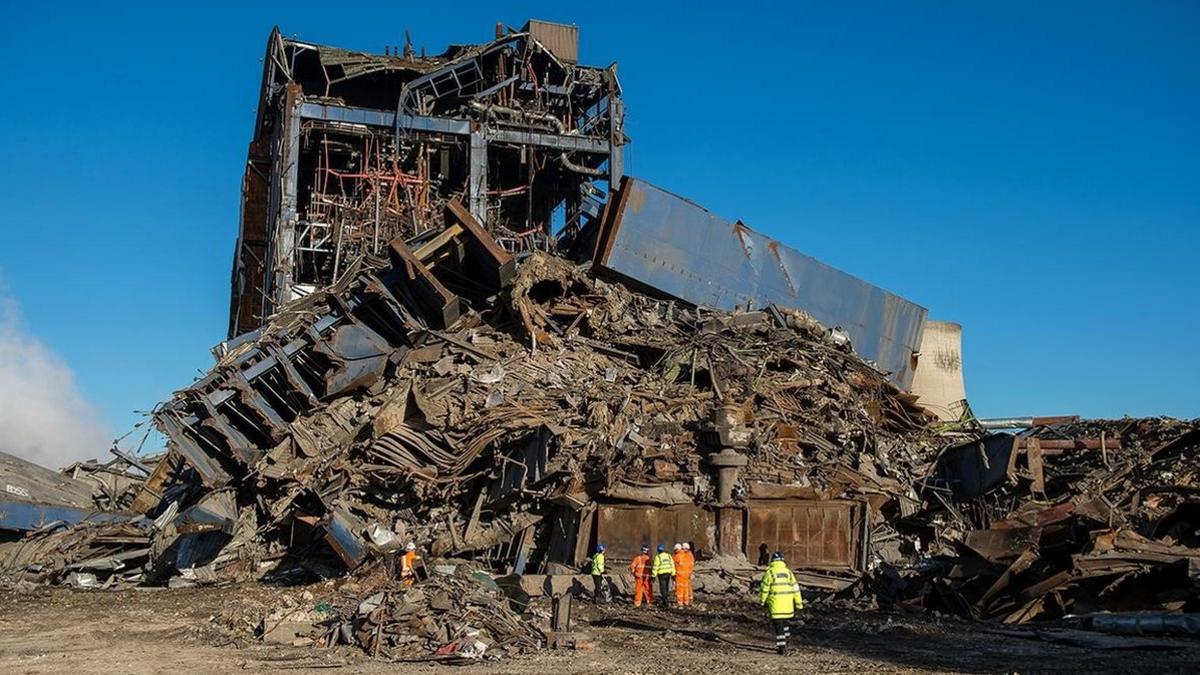
- Published21 June 2016

- Published8 June 2016

- Published29 May 2016

- Published24 May 2016

- Published3 May 2016

- Published29 April 2016
